Eczema: How to Find Reliable Natural Relief

Make sure to like Living Green and Frugally on Facebook, Shop at Amazon to help support my site and explore our PINTEREST BOARDS for innovative ways you can become self-sufficient.
Eczema, a chronic skin condition characterized by itchy, inflamed patches, affects millions globally. While it’s often managed with prescribed medications, many are turning to natural remedies that soothe symptoms without harsh side effects. These remedies can be especially helpful for individuals seeking holistic options or wanting to complement existing treatments.
In this post, we’ll explore seven natural alternatives for managing eczema symptoms. From oils and plant extracts to specific lifestyle adjustments, these options can help you soothe and support your skin.
1. Coconut Oil
Why it Helps:
Coconut oil is known for its antimicrobial and anti-inflammatory properties, making it ideal for soothing eczema flare-ups. It can create a protective layer on the skin that reduces irritation, locks in moisture, and aids in healing cracked skin.
How to Use:
Apply a small amount of virgin, cold-pressed coconut oil directly to the affected areas after a shower or before bed. For best results, use twice daily and consider pairing it with a moisturizer for extra hydration.
Tips:
- Perform a patch test to ensure you’re not sensitive to coconut oil, as some individuals can experience reactions.
- Store your coconut oil in a cool, dark place to preserve its quality.
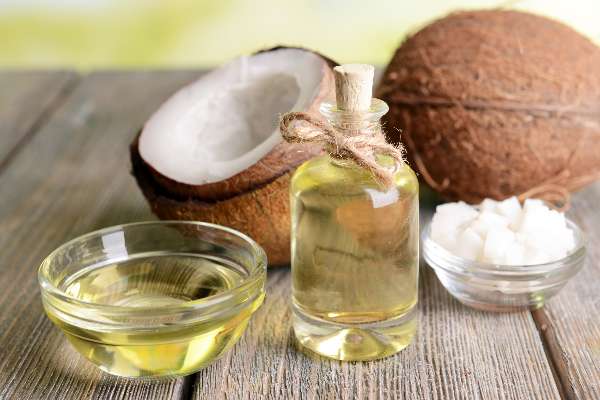
2. Aloe Vera Gel
Why it Helps:
Aloe vera is a natural cooling agent with anti-inflammatory and antibacterial properties. It can relieve the itchiness and dryness associated with eczema while promoting skin healing.
How to Use:
Use pure aloe vera gel (preferably directly from the plant). Apply a thin layer to clean skin and let it absorb. Repeat up to three times daily, especially after washing your skin.
Tips:
- If you have sensitive skin, dilute aloe vera gel with a bit of water.
- Avoid store-bought gels with artificial colors or fragrances, as they can aggravate eczema.
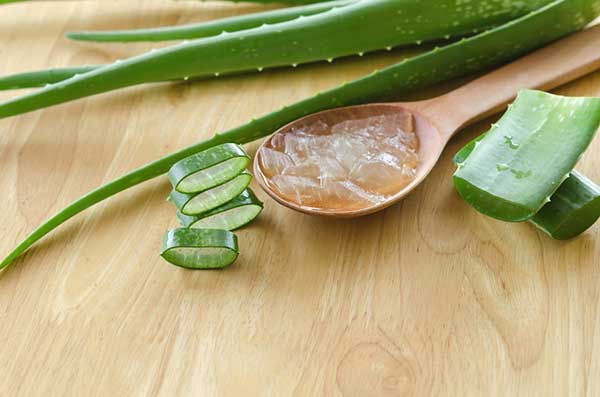
3. Oatmeal Baths
Why it Helps:
Oatmeal contains antioxidants and anti-inflammatory compounds that help reduce skin irritation. Colloidal oatmeal (ground oatmeal powder) soothes and moisturizes, which can calm itching and inflammation.
How to Use:
Add 1-2 cups of colloidal oatmeal to a lukewarm bath. Soak for 10–15 minutes, then pat dry gently to avoid irritation. This can be done a few times a week during flare-ups.
Tips:
- Make your own colloidal oatmeal by blending oats into a fine powder.
- Avoid hot water, as it can strip moisture from the skin and worsen eczema symptoms.
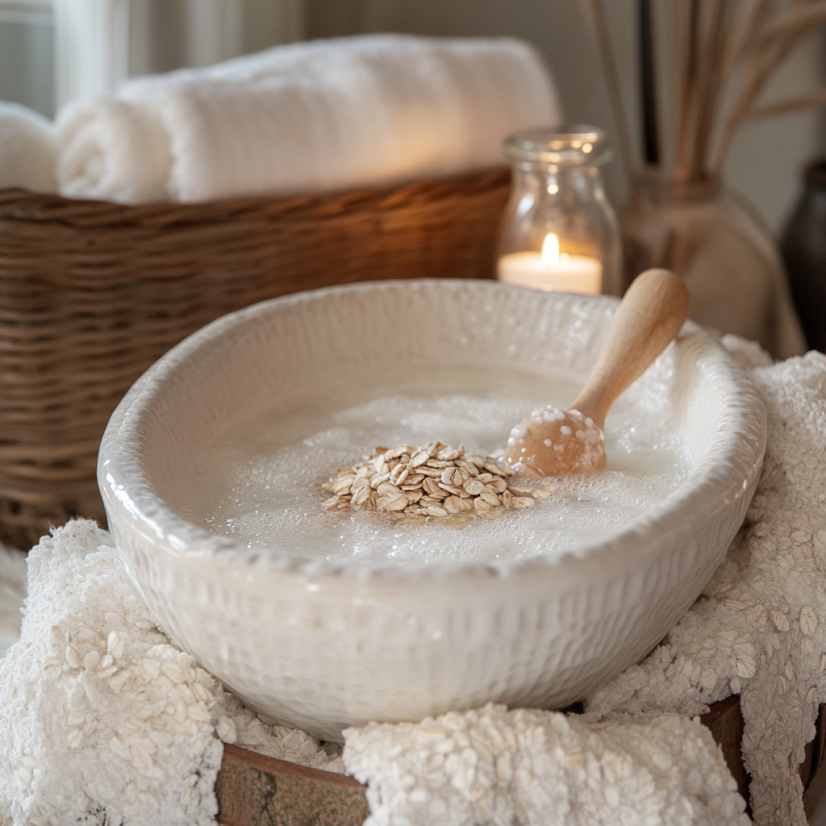
4. Honey
Why it Helps:
Honey has antibacterial, anti-inflammatory, and moisturizing properties. Its natural enzymes can help reduce redness and irritation, while promoting faster healing of broken skin.
How to Use:
Apply a thin layer of raw, organic honey to the affected area. Let it sit for about 20 minutes, then rinse with lukewarm water. Pat dry and apply a gentle moisturizer. Use once daily during flare-ups.
Tips:
- Use only raw, organic honey to avoid added sugars and preservatives.
- If you’re allergic to bee products, skip this remedy to avoid reactions.
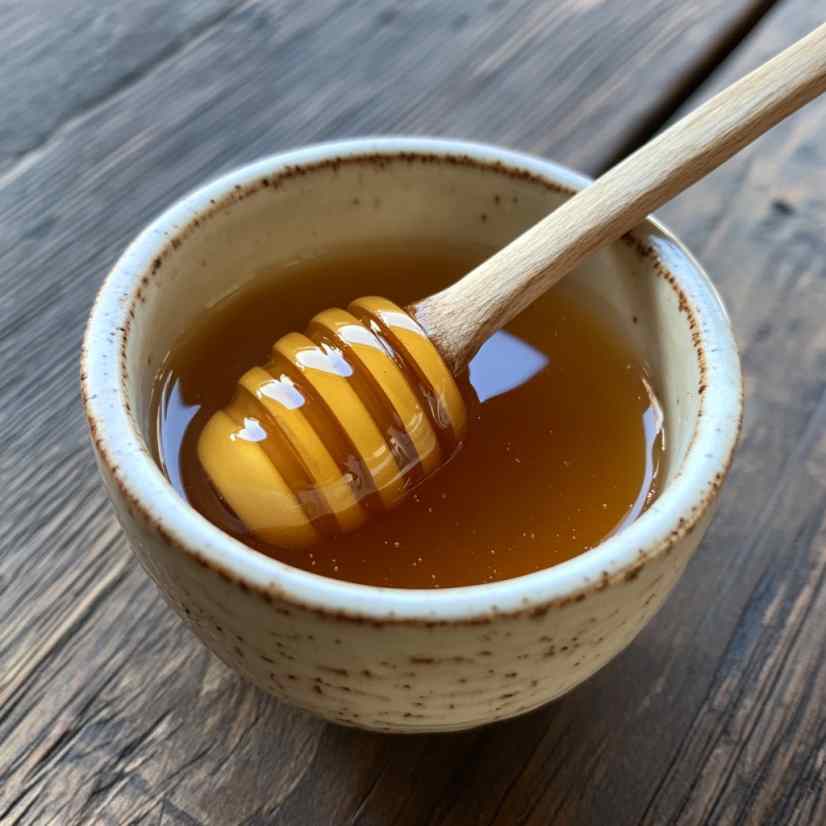
5. Apple Cider Vinegar (ACV) Diluted Spray
Why it Helps:
Apple cider vinegar has mild antibacterial properties that may balance skin’s pH, aiding in skin barrier repair. However, it’s essential to dilute ACV properly to prevent skin irritation.
How to Use:
Mix one part ACV with three parts water in a spray bottle. Spray onto affected areas and let it sit for about 10 minutes. Rinse off and pat dry. Use 1-2 times daily, especially after flare-ups.
Tips:
- Avoid using on broken or highly irritated skin, as it can sting.
- Always dilute; undiluted ACV is too acidic for sensitive skin.

6. Calendula Cream
Why it Helps:
Calendula is a flowering plant known for its skin-soothing properties. It reduces inflammation, itching, and speeds up skin repair, making it a gentle option for eczema relief.
How to Use:
Apply a small amount of calendula cream to the affected areas 2-3 times daily. This cream is often gentle enough for children’s sensitive skin but always check with a healthcare provider if you’re unsure.
Tips:
- Choose creams with high concentrations of calendula for optimal benefits.
- Combine calendula cream with an emollient moisturizer to enhance hydration.
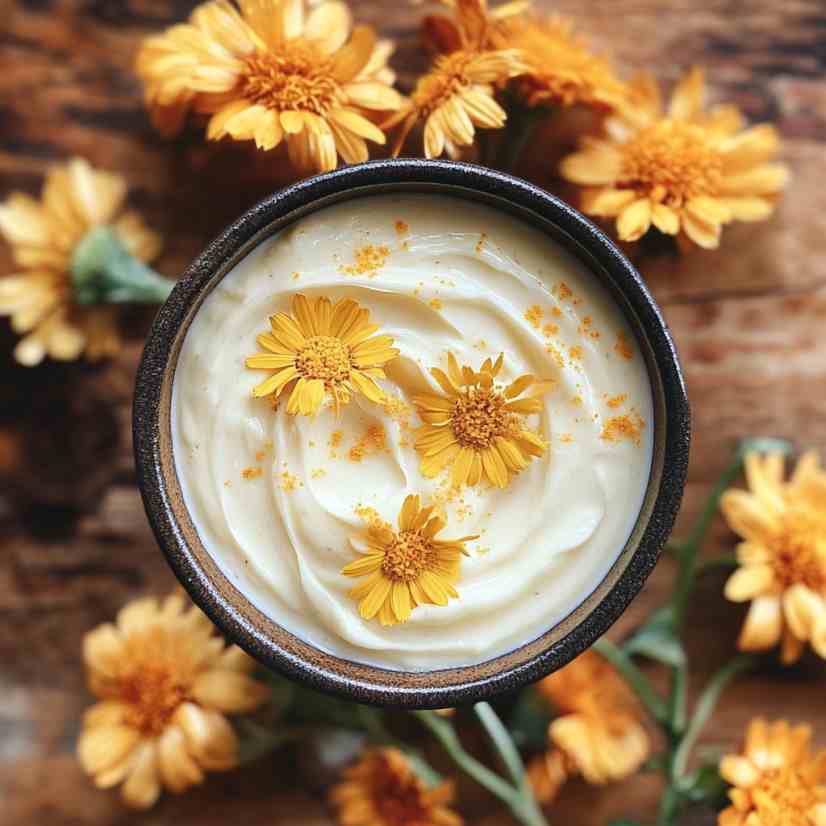
7. Evening Primrose Oil (EPO)
Why it Helps:
EPO contains gamma-linolenic acid (GLA), an omega-6 fatty acid with anti-inflammatory effects. Taken internally or applied topically, it can improve skin hydration and reduce itching.
How to Use:
For topical use, mix EPO with a carrier oil like jojoba and apply to the skin. You can also find EPO supplements, but check with your healthcare provider before taking them internally.
Tips:
- Test on a small patch of skin before using widely.
- Stick to recommended doses for supplements if taking internally, as excessive use can cause side effects.
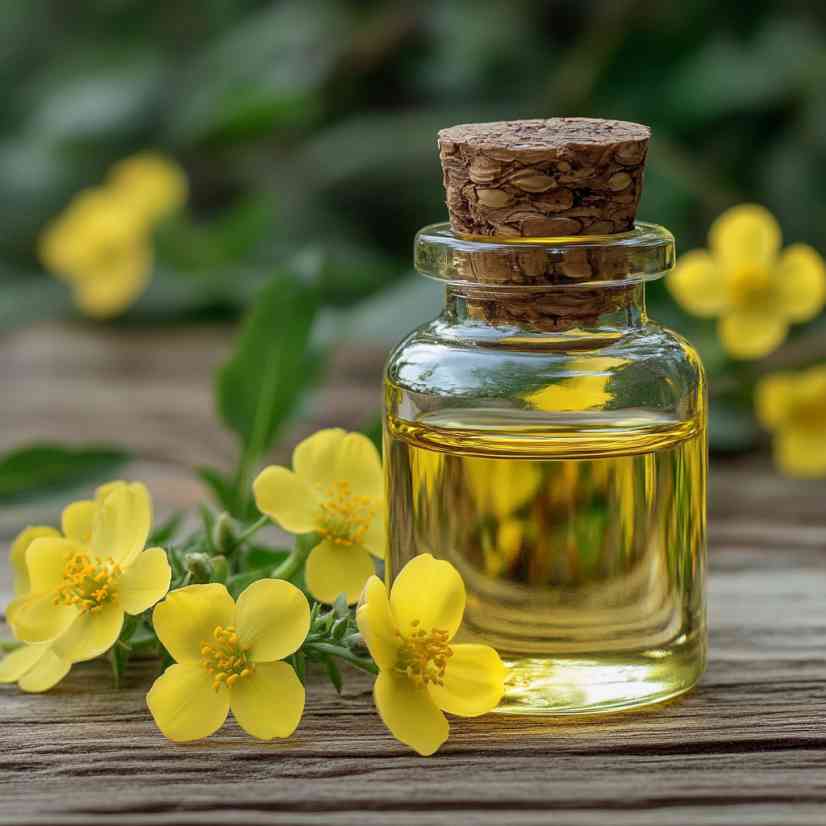
Common Questions About Natural Eczema Remedies
Q: How long should I use these remedies before seeing results?
A: Natural remedies can take longer than medications to show results, but with consistent use, improvements are often noticeable within a few weeks. If you don’t see any improvement or experience worsening symptoms, consult a dermatologist.
Q: Can I combine multiple natural remedies?
A: Yes, many people find success combining remedies like coconut oil and aloe vera. However, it’s best to introduce one at a time to monitor how your skin responds.
Q: Are there any side effects to using these remedies?
A: While generally safe, these remedies can occasionally cause allergic reactions or irritation, especially for those with sensitive skin. Always perform a patch test first.
Q: Do natural remedies completely cure eczema?
A: Eczema is a chronic condition, and there is no permanent cure. Natural remedies may help manage symptoms and reduce flare-ups, but consistency and proper skincare are essential.
Final Tips for Managing Eczema Naturally
- Moisturize Regularly: Keeping skin moisturized is essential in managing eczema. Apply a gentle moisturizer after using these natural remedies.
- Avoid Triggers: Common triggers like stress, allergens, and harsh soaps can worsen eczema. Identify and avoid your specific triggers.
- Seek Professional Advice: While natural remedies are effective, consult a dermatologist for personalized treatment options and guidance, especially if your eczema is severe.
Managing eczema is a journey that requires patience and experimentation. By incorporating these natural remedies into your routine, you can support your skin health in a gentle, effective way.